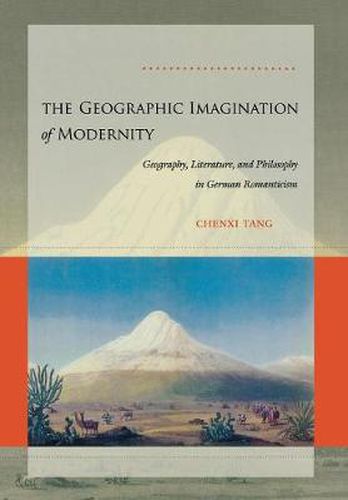Readings Newsletter
Become a Readings Member to make your shopping experience even easier.
Sign in or sign up for free!
You’re not far away from qualifying for FREE standard shipping within Australia
You’ve qualified for FREE standard shipping within Australia
The cart is loading…






The Geographic Imagination of Modernity traces the emergence of the geographic paradigm in modern Western thought in the decades around 1800. This period represents an extraordinary intellectual threshold, a time when European society invented new conceptual strategies for making sense of itself. Tang’s book brings to light, for the first time, geography as one of the most important of these conceptual strategies. Tang’s inquiry revolves, first of all, around the rise of geographic science, as it is in this science that the geographic imagination crystallizes. The second part of the book offers a systematic study of the key spatial categories of the modern geographic imagination, including orientation, cultural landscape, and geohistory. In reconstructing the emergence of geographic science and the modern semantics of geographic space, this book approaches the literary and philosophical discourses of the eighteenth and early nineteenth centuries from a radically new perspective.
$9.00 standard shipping within Australia
FREE standard shipping within Australia for orders over $100.00
Express & International shipping calculated at checkout
The Geographic Imagination of Modernity traces the emergence of the geographic paradigm in modern Western thought in the decades around 1800. This period represents an extraordinary intellectual threshold, a time when European society invented new conceptual strategies for making sense of itself. Tang’s book brings to light, for the first time, geography as one of the most important of these conceptual strategies. Tang’s inquiry revolves, first of all, around the rise of geographic science, as it is in this science that the geographic imagination crystallizes. The second part of the book offers a systematic study of the key spatial categories of the modern geographic imagination, including orientation, cultural landscape, and geohistory. In reconstructing the emergence of geographic science and the modern semantics of geographic space, this book approaches the literary and philosophical discourses of the eighteenth and early nineteenth centuries from a radically new perspective.